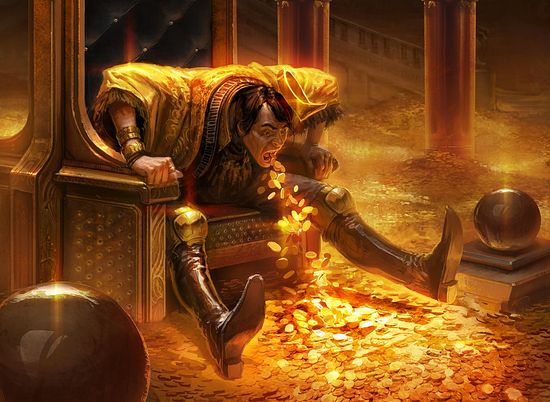Addictions are strange things. I have a friend who says that the problem with alcohol is that there “simply isn’t enough.” Non-addicts frequently misunderstand. I once heard someone say to an addict, “When you decided to go down that road…” There is very little decision within an addiction. The disease of addiction itself does the choosing. The person involved often watches helplessly as they go through the motions of yet another round, watching everything head in a direction over which they feel powerless.
First the man takes a drink.
Then the drink takes a drink.
Then the drink takes the man.
This is easily described in terms of alcohol and drugs. However, I believe we are a culture of addicts. Those on drugs and alcohol are simply lucky enough to be able to see their addiction more clearly.
Within the list of sins that come up in the Scriptures, “drunkenness” has its honorable mentions. However, there is a deeper addiction, far more pervasive, that plays a greater role, both in Scripture and in our own lives: greed. This little English word seems rather quaint. It sounds like something that belongs in a Dickens novel. Indeed, it is so removed from our working moral vocabulary that it can be proclaimed (without blushing), “Greed is good.” Greek has a much richer term: pleonexia. It means “the desire to have more.” And that definition suggests a much larger and pervasive problem indeed.
“To have more” lies at the heart of modern civilization. Wealth and prosperity at ever-increasing levels are held as promises to be desired. We often measure our economies by growth rather than any measure of well-being. Greed for us means nothing more than wanting too much. We fail, however, to challenge the wanting itself.
I am not concerned with economic theory here, except in the relations that can be called the “spirituality” of the culture. If there is a spirituality of consumerism, it is best described as pleonexia, greed. It is what drives consumers. It is sadly true that if greed were to cease tomorrow, the world as we know it would collapse. We have no inherent control on greed other than the limits of our credit cards.
If our desire to have more is to be maintained at its required level, we ourselves are required to believe in it and to agree to participate in it. And here our addiction comes to the fore. We not only desire to have more, we often find ourselves powerless to desire less. “Buyer’s remorse” is not a fiction—it is the consumer’s version of a hangover.
If the desire to have more were limited to material goods, it would, perhaps, be but a bothersome thing. However, the disease of pleonexia is spiritual and infects the whole of our lives. Pleonexia is not a disease that can be isolated to a single area of our lives. We want more of everything: more things, more sex, more food, more entertainment, ad infinitum.
In the Kingdom of God, self-emptying is the principle of true existence (cf. Phil 2:5-11). And so we find ourselves enthralled by a spiritual principle of the deepest irony: we crave more which draws us further and further away from our very being. The more we gain, the less we exist.
“What does it profit a man if he gains the whole world and loses his soul?” This saying of Christ is daily being fulfilled in the course of our lives. It is worth noting that the great writer Alexander Solzhenitsyn rediscovered his faith when he was in the Gulag prison system of the Soviet Union. Strangely, the emptiness of that bleak existence became a treasure for him. When he was first released into external exile, he managed to find a small shack in which to live. He had no money to furnish it. He found a couple of boxes to serve for a bed. When his circumstances later improved and he gained an apartment, he took the boxes with him for his bed. He feared the road of pleonexia and treasured the spiritual freedom he had found in poverty.
The Orthodox way of life purposefully asks us to renounce the spirit of Mammon. We fast, we practice generosity—and we do so as a way of life. We were not created for acquisition. Our life is found in the Cross. The Cross is both the place Christ accomplished our salvation, as well as the way of salvation itself. It is the wisdom as well as the power of God. The wisdom of the Cross is the self-emptying of Christ. This self-emptying is not anti-life, but the actual mode of true-existence. “Whoever loses his life for My sake will find it.” (Mat 16:25)
There are many who concern themselves greatly about how a nation’s economy works (just post an economic thought on Facebook and watch the traffic). Most of our thoughts are generated by the same consumer/political/information conglomerates who press us towards consumption in the first place. For the time being, Christians should satisfy themselves that their own renunciation of consumerism will not bring the entire economy to a halt. But if we refuse to turn away from the manifold forms of pleonexia, then the whole of our soul will be in danger.
Thinking about the spirituality of pleonexia, we do well to examine the whole of our lives. Our desire to have more drives others away from us, or places them in the position of begrudging competitors. They interfere with my time, my plans, my interests, my pleasure, etc.
For Christ’s sake, lose your life. Why should you keep trying to gain the world?





